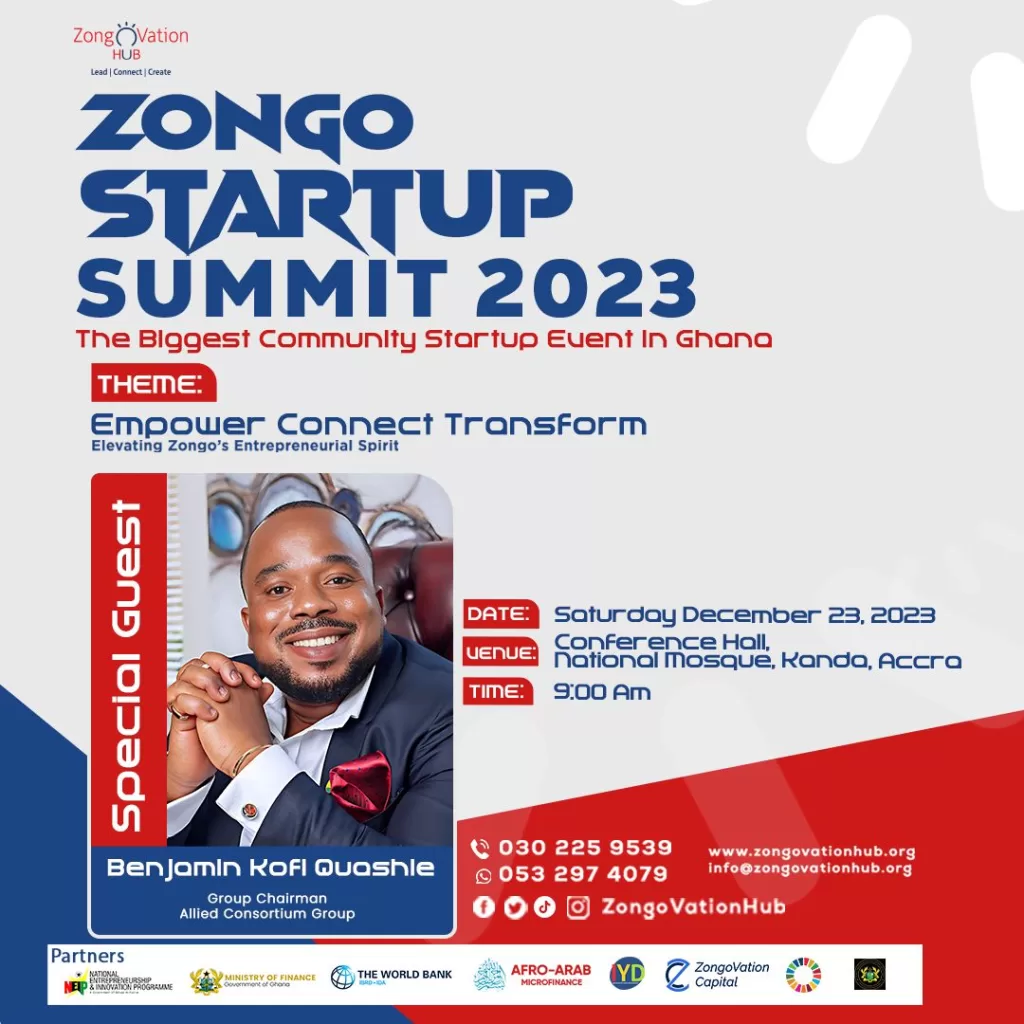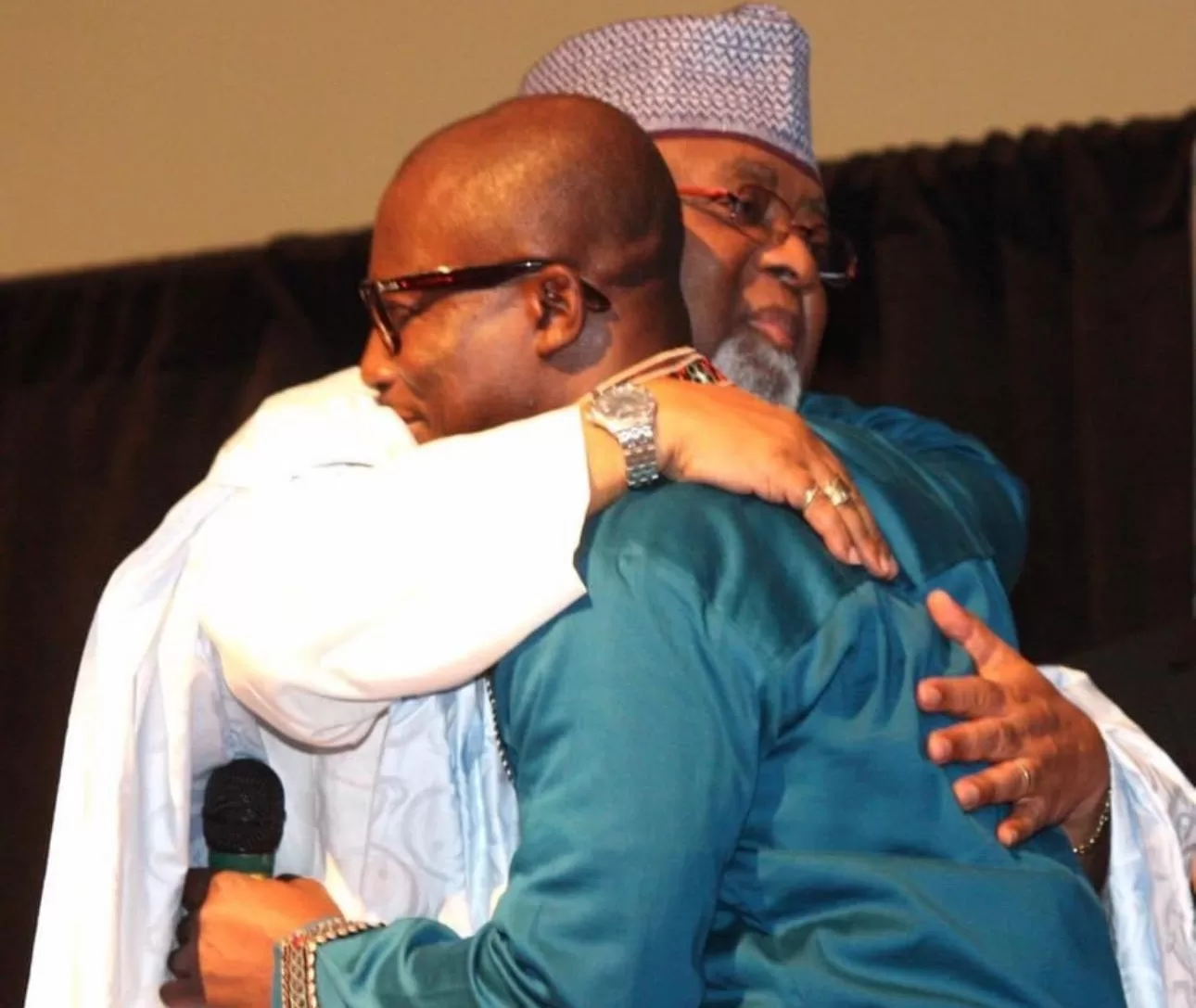Thank you for the warm invitation and the privilege to address this distinguished gathering. Today, we come together to explore a matter of profound importance – the elevation of Zongo’s entrepreneurial spirit in Ghana.
Before delving into the entrepreneurial landscape, let us first acknowledge the rich history and heritage of the Zongo community. Through the years, the people of Zongo have played a vital role in shaping Ghana’s cultural and societal fabric. In moments of adversity, the Zongo community has demonstrated remarkable resilience and strength, overcoming challenges and contributing significantly to our nation’s development.
One notable avenue through which Zongo has made a lasting impact is in the realm of culture and economic growth. The Zongo community has been a wellspring of remarkable cultural and economic expressions, adding vibrancy and diversity to Ghana’s development journey until the last few years when our nation began to retrogress. These not only underscore the incredible talent within the Zongo community but also serves as a testament to its immense potential.
Now, as we focus on entrepreneurship within the Zongo community, let us recognize its vital role. Entrepreneurship is not merely a path to economic development; it is a catalyst for empowerment and community growth. As we embark on this journey, let’s explore the reasons why entrepreneurship is crucial for the Zongo community.
Firstly, entrepreneurship creates employment opportunities, reducing unemployment rates and contributing to financial independence. Secondly, it encourages innovation and problem-solving, fostering a culture of creativity and adaptability. Lastly, it allows for the preservation and promotion of cultural identity, as businesses often reflect the unique characteristics of the communities they originate from.
However, we acknowledge the challenges that entrepreneurs, especially in the Zongo community, may face. Access to initial capital, bureaucratic hurdles, and a lack of infrastructure are significant obstacles. Despite these challenges, I urge you not to lose hope. I urge you to believe in the story of the many business people who have emerged successful despite the harsh business environment.
Consider the inspiring stories of successful Muslim entrepreneurs who have overcome similar hurdles. Think of names like Asumah Banda, who has made significant strides in various business sectors, proving that success knows no boundaries when determination and hard work are at the forefront. Additionally, CEOs such as Alhaji Salamu Amadu of the Afro-Arab Group of Companies and Alhaji Mai Litafi, the CEO of Hulani Enterprise, exemplify the resilience and success achievable through dedication and effort. Notably, Ibrahim Mohammed Awal, CEO of Graphic Communication Group and Chase Petroleum, also stands as a testament to the entrepreneurial spirit and achievements within the Zongo community.
In our pursuit of elevating the Zongo entrepreneurial spirit, empowerment stands as a crucial pillar. We must empower individuals with the tools, skills, and knowledge they need to succeed. This begins with a commitment to accessible and high-quality education, ensuring that our youth are equipped for the challenges and opportunities of the modern business landscape. Financial literacy, vocational training, and technology education must be championed to empower individuals to navigate and contribute meaningfully to the entrepreneurial world.
Empowerment also entails creating avenues for aspiring entrepreneurs to access capital. By establishing community-based funds, collaborating with financial institutions, and advocating for supportive policies, we can break down financial barriers and unleash the potential waiting to be tapped within our Zongo communities.
The second pillar of our journey is networking. Networking is the lifeblood of any thriving entrepreneurial ecosystem. It involves fostering a collaborative culture where ideas, skills, and resources are shared and synergized. Networking events, communal workspaces, and community-driven projects can be the catalysts for meaningful connections. Who you know can change your destiny, so in all your getting, get to know relevant people.
Most Importantly, mentorship and role models play a pivotal role in connecting generations of entrepreneurs. By creating mentorship programs and platforms for experienced business leaders to guide and inspire emerging entrepreneurs, we establish valuable connections that transcend generations and ignite the flames of innovation.
The transformative aspect of our journey signifies a shift in the mindset and a commitment to celebrating success. We must break free from stereotypes and instill in our communities a fearless determination to pursue entrepreneurial dreams.
The visionary proposal by John Dramani Mahama for a 24-hour economy holds immense potential for the Zongo community. This proposal, when implemented, could bring a multitude of benefits to our doorstep. A 24-hour economy would increase business opportunities, providing more time for economic activities. Entrepreneurs in the Zongo community could capitalize on this by offering goods and services during non-traditional hours, catering to the needs of customers who work unconventional shifts or have different lifestyle patterns. It would also serve as a job creation opportunity, as the expansion of business hours may lead to increased demand for labor, creating job opportunities within the Zongo community. This could be particularly beneficial for youth employment and skill development.

The implementation of a 24-hour economy would also bring diversity to our economic activities. Zongo entrepreneurs might explore new markets, products, or services to meet the demands of a round-the-clock society, fostering innovation and growth.
A 24-hour economy would also enhance infrastructure and services. The demand for a 24-hour economy may lead to improvements in infrastructure and services, such as better transportation options, improved security, and upgraded utilities. This, in turn, could create a more conducive environment for business operations.
Furthermore, a 24-hour economy would influence cultural and social dynamics within the Zongo community. It could lead to new social spaces, events, and interactions that contribute to a more dynamic and interconnected community.
However, I urge all my brothers and sisters here today to rally behind this vision, as many have demonstrated in the past few days, to rescue our Ghanaian economy. This, in turn, would benefit our business setups and bolster our spirit towards the entrepreneurial hub.
In conclusion, the elevation of Zongo’s entrepreneurial spirit is a holistic journey of empowerment, connection, and transformation. As we collectively embark on this endeavor, let us empower our youth, connect our talents, and celebrate our successes. Together, we can transform our Zongo communities into vibrant hubs of innovation, where dreams are not just imagined but realized, and where the entrepreneurial spirit thrives as a driving force for positive change.
May the entrepreneurial spirit of Zongo continue to shine bright.
THANK YOU!!!














